
|
Vol 80 |
Page 18 |
Privacy Policy | Editorial Policy | Profit Policy | Join the Association | List of Members | Contact us | Index | Links
Back Go to page: 1 2 3 4 5 6 7 8 9 10 11 12 13 14 15 16 17 18 19 20 Forward
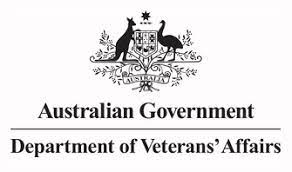
DVA Issues.
If you or a member of your family require assistance with navigating any claim with the Department of Veterans’ Affairs, please contact charity RSL DefenceCare on (02) 8088 0388
or email info@rsldefencecare.org.au or the Welfare Officer at your local RSL sub-Branch.
Contents:
Reporting the death of a Veteran or DVA client.
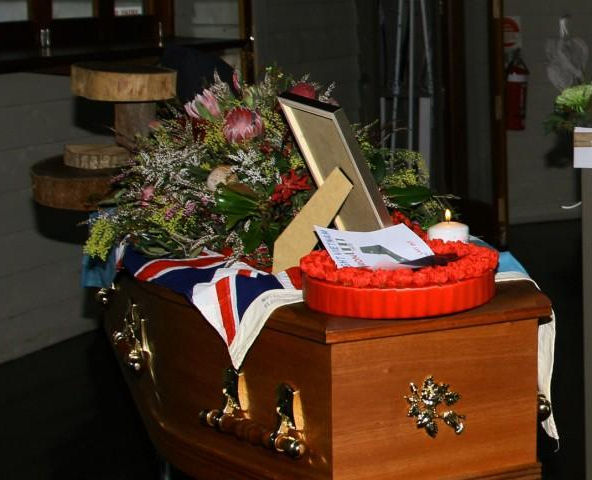
Veterans occupy a special place in our community and the passing of a Veteran is a sad time, particularly for family and friends. For those dealing with the death of a Veteran, or for Veterans nearing end of life, there are a number of important steps to follow.
When a Veteran dies, it is important that DVA is notified in a timely manner. This will ensure entitlements for the Veteran (if they are a DVA client), their surviving partner and dependants are processed quickly. This early notification also reduces the likelihood of incurring an overpayment of benefits.
For Veterans nearing end of life, there are some steps to make it easier for family and loved ones. Getting personal affairs in order and providing important personal information to family members can make it easier for loved ones to manage at a difficult time. DVA’s planning ahead kit may help you.
You can download the Planning Ahead kit HERE and a Planning Ahead check list HERE.
Support available for anyone impacted by the ongoing OSI investigation.
Some (most ?? tb) members of the Veteran and Defence community may be concerned by the ongoing investigation by the Australian Federal Police and the Office of the Special Investigator, which was set up in the wake of the Inspector-General of the Australian Defence Force (IGADF) inquiry.
The findings of the IGADF inquiry are serious and may understandably cause concern or anxiety in the community, especially for Afghanistan Veterans and their families. DVA’s focus is to support Veteran’s health and wellbeing, so, if you need mental health or medical support, it is strongly recommended that you to get in touch with DVA. DVA is not part of any investigation, their only concern is the wellbeing of Veterams.
To anyone who is serving in the Australian Defence Force (ADF), or has served, or is close to a serving or ex-serving member, please remember - You should be immensely proud of your service, or your loved one’s service and there is overwhelming respect in the Australian community for your service and sacrifice.
If you need help, reach out and get the specialist support you need. Support is readily available through DVA and is routinely used by thousands of serving personnel and Veterans every year. Families, particularly children and teenagers, could also be affected and there is support available for them as well. We don’t need to know what happened overseas. We just want to make sure you’re okay. And help you cope with what you are feeling today.
Where to get help
For all current ADF members and their families, the Defence all-hours Support Line is a confidential phone and online service and is available on 1800 628 036. Families of serving personnel can also contact the Defence Family Helpline on 1800 624 608.
All current and ex-serving ADF personnel and their families can access Open Arms – Veterans & Families Counselling. Open Arms is a national mental health service that provides 24-hour free and confidential counselling. It is not part of the Department of Defence. Importantly the Open Arms website provides a range of self-help resources and wellbeing tools. Visit openarms.gov.au or phone 1800 011 046.
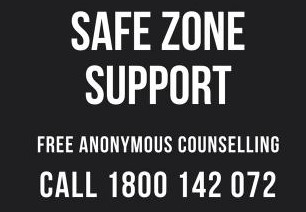
In addition, Safe Zone Support is an anonymous counselling service that has been established to support Veterans and their families impacted by the IGADF Inquiry. Safe Zone Support is staffed by specialist counsellors who have an understanding of military culture and experience and can be accessed at: openarms.gov.au/safe-zone-support or 1800 142 072. Calls to Safe Zone Support are not recorded. Both current members of the ADF and Veterans can access this service any time, day or night.
Family of Veterans or service personnel who are concerned about the impact the arrest or the Inquiry may have on a loved one, can call DVA to seek guidance on the support available. If you are unsure what support is available please contact DVA on 1800 VETERAN (1800 838 372). If you know someone in need, please pass on this important message – DVA is there to help.
Ex-service and non-government organisations
-
Ex-service organisations (ESOs) play a vital and complementary role to DVA by providing mateship, advocacy and welfare support. You can find ESOs on the DVA website.
-
There are also a number of excellent non-service related community organisations available, such as Lifeline (call 131 114 for 24/7 crisis support or visit www.lifeline.org.au)
Don’t think gender matters? Go buy a rooster for eggs and a bull for milk.
You will soon learn that God knew what he was doing.
Better access to information for ADF personnel and Veterans.
On the 4th April, 2023 the Government announced that it has implemented a further five recommendations from the Royal Commission into the Defence and Veteran Suicide Interim Report. Changes have been made to improve access to information and personnel records held by Defence and DVA, providing serving and ex-serving members of the Australian Defence Force (ADF), Veterans and families a more streamlined experience when seeking access to records.
This includes the establishment of Information Access Units within the two departments, additional education material on information-access processes, how and why redactions occur and updates to both departments’ websites. The Information Access Units will serve as a single point of contact within each department for information requests. The units are already working closely together to facilitate requests quickly and seamlessly.
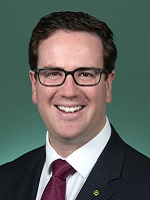
Minister for Veterans’ Affairs and Defence Personnel, Matt Keogh, said the initiatives demonstrate commitment to improving access to information for ADF members, Veterans and families. ‘The Royal Commission’s Interim Report was clear, as was the Veteran and family community, that the information access process wasn’t fit for purpose. The Government has been working to address this as quickly as possible,’ he said. ‘Following a comprehensive co-design process with Defence personnel, Veterans and families, DVA and Defence are implementing a raft of improvements to make sure the system is easier to navigate.’
Along with improving access to information, the Government continues to implement its response to the Royal Commission’s other recommendations. This includes engaging 500 new frontline DVA staff to eliminate the compensation claims backlog and the public consultation on a pathway to reform more than a century of Veterans’ entitlement legislation, which is currently underway.
For more information about accessing information held by Defence or the Department of Veterans’ Affairs, or to provide feedback on new material and/or processes visit their websites.
The Government’s full response to the Royal Commission’s interim report can be found on the Royal Commission’s website.
DVA help for Veterans and families experiencing family and domestic violence

DVA is here to help if you or a family member experiences family and domestic violence. Our new family and domestic violence help webpage provides information about the various support services available for those experiencing, or who have experienced, family and domestic violence.
Some of the support services DVA can provide to Veterans and families include counselling, short-term accommodation and payments. Family and domestic violence is any action that is violent, threatening, manipulating or controlling, or that causes a family or household member to feel scared. It can be abuse that is physical, verbal, emotional, sexual or psychological.
For more information on family and domestic violence visit the family and domestic violence help webpage.
If you or someone else is in danger call triple zero (000).
The healing power of sport - what are adaptive sports?

Quite often we hear or read about how being active is good for our health and wellbeing. In fact, the Australian Government has physical activity guidelines that advises how much physical activity we should be doing each week for good health according to our age.
Participating in regular physical activity can help us maintain a healthy body weight, reduce our risk of developing heart disease, cancer, diabetes and other chronic illnesses, reduce stress, improve our sleep and even improve our mood.
Even if you’re injured or ill, you can still be active with others in a safe, fun and supportive environment with adaptive sports. Adaptive sports assist Veterans who have been wounded or ill recover and rehabilitate whilst participating in physical activity and sports.
Read the full story on the DVA website.
There is help available if you are a homeless Veteran.
DVA.

There is support available for you and your family if you are homeless or at risk of becoming homeless. You can go to one of our Veterans’ Access Network offices to talk to someone about your situation. They can:
-
refer you to support services in your local area
-
connect you with our support services
-
provide you with information on any support payments available to you
-
provide you with information about Services Australia (Centrelink) payments and services
-
connect you to a network of organisations that can assist you.
If you need urgent help, please visit our Receive urgent help and support page. If life is in danger, call triple zero (000).
For more information, see the Homelessness Support Services page.
Open Arms.
If you are at risk of homelessness, Open Arms – Veterans & Families Counselling can help put you in touch with crisis support services in your area. In crisis situations, Open Arms can also provide support for crisis accommodation. Its Crisis Accommodation Program allows someone to pause, be in a safe location and creates a period of time to manage factors contributing to the crisis situation. Any person who is eligible for Open Arms services can access the program.
For more information about Open Arms, visit its website or phone 1800 011 046. Open Arms is a confidential service and available 24 hours a day.
The RSL, RSL Care and RSL LifeCare
Different RSL support organisations operate in different parts of Australia.

NSW
Whether you need to access safe and secure long-term accommodation, secure your existing accommodation or transfer to a more stable home environment, the team at RSL LifeCare Veteran Services can work with you to help you live sustainably in your chosen community. RSL LifeCare Veteran Services, the partner charity of RSL NSW, offers a range of homelessness and housing services to Veterans and families including:
· Emergency accommodation
· Financial assistance including help to pay rental bills or bond payments
· Rent Choice Veterans Program, to help obtain a new rental lease and/or secure subsidised rent
· Homelessness assistance, providing access to safe, secure and stable accommodation
Visit the RSL LifeCare website or call 02 8088 0388. For urgent assistance after hours please call Link2Home Veterans on 1800 326 989
Queensland and Tasmania
RSL Queensland provides homelessness and emergency accommodation, partnering with The Salvation Army to assist Veterans in accessing safe and sustainable rentals. Once you’re safe, they can help you find appropriate rental accommodation and link you to their holistic range of services such as:
· advocacy – support with DVA claims and appeals
· employment – assistance in securing meaningful employment.
To find out more about these services, visit the RSL Queensland website. RSL Tasmania works with RSL Queensland to provide these Veteran support services within its region.
South Australia
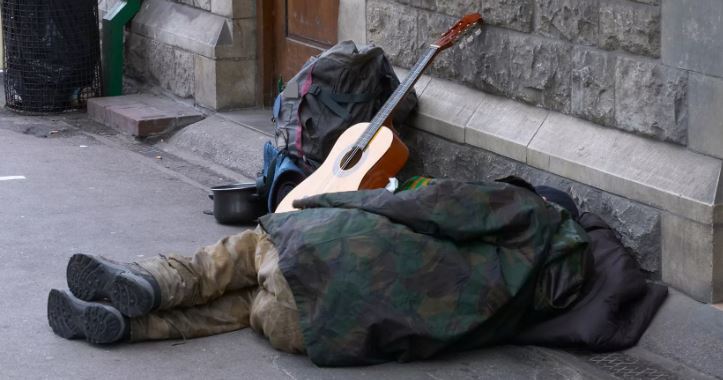
The Andrew Russell Veteran Living (ARVL) program, a division of RSL Care SA, helps any ex-service person in South Australia who is homeless or at risk of homelessness to access appropriate and affordable housing solutions and practical supports. The emphasis is on helping Veterans to achieve positive accommodation outcomes for themselves. Visit the ARVL website or phone 0488 137 570.
Victoria
RSL Victoria and its sub-branches provide an access point for Veterans and families in need of housing and accommodation services where and when they need it. RSL in Victoria links individuals and families to service providers through its leadership, partnerships and Veteran support services. For more information about their services visit the RSL Victoria website or contact 1300 MILVET.
Western Australia.
RSL Western Australia State Branch helps homeless Veterans to secure safe affordable accommodation through both financial and practical support. Veterans are referred, in the first instance, to the Open Arms Crisis Accommodation Program, with RSLWA providing vouchers for food and other essential items. The Welfare Team continues to work with the Veteran providing assistance in advocacy, financial counselling and employment services if appropriate.
In THIS VIDEO, “Duncan” talks about how he lost his house, his job and his marriage all due to alcohol misuse. Fortunately, he was able to get back on his feet with the help of DVA, Open Arms – Veterans & Families Counselling as well as RSL Care SA (via Andrew Russell Veteran Living).

Commemorative medallion and certificate of recognition.
The Australian Government has produced a 50th anniversary commemorative medallion and certificate of recognition, honouring the service of Australians who served in the Vietnam War.
On 29 March 2023, Prime Minister Hon Anthony Albanese MP and Minister for Veterans’ Affairs Matt Keogh officially announced the medallion, presenting a group of Vietnam Veterans with their commemorative medallion and certificate, at a special ceremony held at Parliament House, acknowledging their service and sacrifice in Vietnam.
The commemorative medallion and certificate is available to all Australian men and women who served in Vietnam and to the family of Veterans who have since passed away or were tragically killed in action during the Vietnam War.
To apply for the 50th anniversary commemorative medallion and certificate of recognition, please visit www.dva.gov.au/vietnam50.
No changes to fully-funded mental health treatment for Veterans.
Any Veteran who has completed even one day of full-time service in the Australian Defence Force (ADF) can access fully funded mental health treatment within Australia. Treatment can be accessed for as long as it is needed, at no cost to the Veteran, under Non-Liability Health Care (mental health) (NLHC mental health). Reservists with border protection or disaster relief service or those involved in a serious, service related training accident may also be eligible.
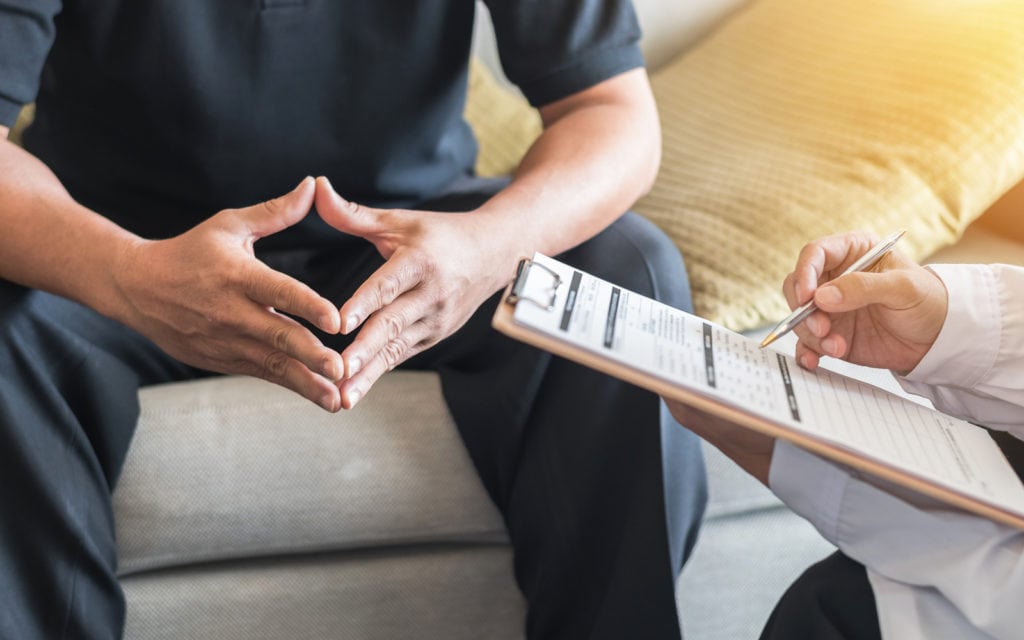
Recent reports have incorrectly claimed that restrictions have been introduced for exercise physiology and other allied health services under NLHC (mental health). DVA assures Veterans, there have been no changes to treatment eligibility for White Card holders accessing care under NLHC .
DVA continues to provide fully funded mental health treatment to Veterans under NLHC (mental health) arrangements. Accessing treatment early for mental health conditions can lead to improved overall health. Conditions treated through NLHC (mental health) do not need to be related to military service and a claim for compensation is not required to access treatment. However, a Veteran White Card is needed to pay for treatments provided under NLHC (mental health), so it is important to check with each provider that they will accept a White Card before making an appointment.
Watch THIS VIDEO.
Receive healthcare while your claim is processed
Accessing timely and quality healthcare can make a big difference to a person’s wellbeing. The last thing anyone wants is to wait for treatment while their healthcare claim is being processed. DVA recognises that your health should not wait. The sooner you receive treatment, the sooner you can get better. This is why DVA has implemented the Provisional Access to Medical Treatment (PAMT) program.
The program is available for claims submitted under the Safety, Rehabilitation and Compensation (Defence-related Claims) Act 1988 (DRCA) and the Military Rehabilitation and Compensation Act 2004 (MRCA).
Under PAMT, you can receive treatment for 20 of the most commonly accepted conditions before your claim has been finalised. This means you don’t have to wait for us to approve your claim before you can access treatment. To access the PAMT program, you simply need to submit your claim for one or more of the listed conditions before 30 June 2024. You will then be able to get treatment for that condition under the program until either 31 December 2024, or when your claim is determined, whichever occurs first.
For more information on who is eligible to PAMT, which conditions are covered and what happens when your claim is accepted or not, visit the PAMT page on the DVA website.
You can find out more in this new DVA TV video:
Accessing evidence-based treatment for posttraumatic stress disorder

Posttraumatic stress disorder (PTSD) is the second most common mental health condition in Australia and rates of PTSD are substantially elevated among Australian Defence Force (ADF) personnel compared with the general population. Effective, evidence-based treatments for PTSD are available, however recent research indicates about half of those suffering with PTSD do not get treatment.
The decision to seek treatment can be a difficult one and there are many reasons why people may struggle to reach out for the help and support they need, including shame, stigma, cost, uncertainty where to start, or negative beliefs about psychological treatment. If you or your family member are experiencing symptoms relating to their mental health, these tips and resources may assist you in reaching out for effective care.
Information and resources about mental health conditions and self-care
Understanding and identifying the symptoms of PTSD and other mental health disorders can often be the first step to making sense of what is happening for you or your family member. The Phoenix Australia website provides information to help you identify the symptoms of different mental health disorders and options for treatment. The website also provides information on practical strategies you can put in place to help you cope with distressing emotions and stay connected with others following exposure to a traumatic event. The Helping Others webpage provides information for family members of individuals affected by trauma on how to support their loved ones following a traumatic event.
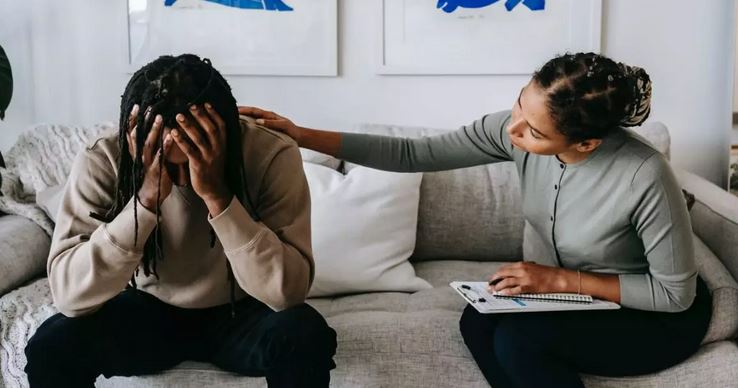
Accessing support.
Reaching out to a professional to discuss your concerns about your mental health can be challenging and knowing where to begin is often difficult. The ‘Mental health support services’ page of the DVA website (HERE) outlines options for those who have served with the ADF to receive free mental health care, including how to access care through Open Arms – Veterans & Families Counselling.
If you feel unsure about where to seek help or want to explore your options, your GP can help you determine which treatment option might be best for you and provide you with a Mental Health Treatment Plan to facilitate access. HealthDirect, an Australian Government health information initiative, provides information on choosing the right GP for you, how to start the conversation about mental health with your GP and what your GP might ask you when you start talking about your mental health.
How to talk to someone you are concerned about
Often, those around us can be first to recognise when we are struggling with our mental health. If you are concerned about the mental health of someone you care about, you can download an informative booklet which is a comprehensive fact sheet on mental health and wellbeing following military service. You can get it HERE.
Learn about Veteran Support Officers.
Veteran Support Officers (VSOs) are DVA advisers who provide personalised support and guidance to serving ADF members and families.
Click on the video below for an insight into their role.
It's weird being the same age as old people.
GPs and White/Gold cards.
In general, DVA pays a rate higher than the equivalent Medicare Benefits Schedule (MBS) fee. The exact percentage varies depending on the service and ranges from 100% for pathology to 145% for out of hospital psychiatric specialist consultations.

For general practitioners (GPs), the fee is 115% of the MBS fee. GPs can also claim a supplementary Veteran Access Payment for services delivered to DVA clients. In return for higher rates, providers are not permitted to charge DVA clients a gap fee.
DVA is aware of some GP clinics advising they will no longer accept DVA Cards. While this is regrettable, it is a business decision for the provider concerned.
There remain many thousands of health care providers in Australia, including GPs who continue to accept the Veteran Card for full payment of their services. In 2021-22, there were nearly 35,000 (34,974) GPs that provided more than 1.2 million (1,217,480) services to 141,130 Veteran Card holders.
If a veteran is having difficulties accessing a health care provider, DVA can assist in a number of ways, including by:
-
helping to find a local provider who accepts the Veteran Card
-
arranging transport to alternate health care providers where there is a valid clinical need, funding services above the DVA rate
Any veteran who needs assistance should get in contact with DVA on freecall 1800 VETERAN (1800 838 372).
You’d be surprised how quickly employees at Bunnings assist you,
after ignoring you for 20 minutes, when you try and start a chainsaw.
Not my ABC.
For those following Heston Russell’s fight with the ABC, Heston wanted to provide you with the latest update on his court case with the ABC.
Heston says:
“After months of preparation and legal proceedings, I'm pleased to inform you that the trial date has finally been set for July 28th - in Sydney at the Federal Court of Australia. Justice Lee has scheduled us in for a 5 day trial commencing on July 28th.
You can see the latest media updates on the blog - https://HestonRussell.com/abc
This is a crucial step towards achieving justice and holding ABC accountable for their actions. Throughout this entire process, your support has been invaluable and I cannot express my gratitude enough for standing by me. Your belief in truth and integrity is what drives me forward.
While the ABC is able to use taxpayer’s money to fund their every action, I've had to get creative. One way you can support is by purchasing a ‘NOT MY ABC’ badge if you resonate with this.
You can pre order the "NOT MY ABC" badge by clicking the pic at right.
Thank you once again for standing by me in this battle, it fuels my determination to see this through.”
Yours in service,
Heston Russell
Wife: You pick dinner.
Husband: Pizza?
Wife: No
Husband: Fish and chips?
Wife: No
Husband: Chinese?
Wife: No
Husband: What do you want then?
Wife: It’s up to you!
Back Go to page: 1 2 3 4 5 6 7 8 9 10 11 12 13 14 15 16 17 18 19 20 Forward